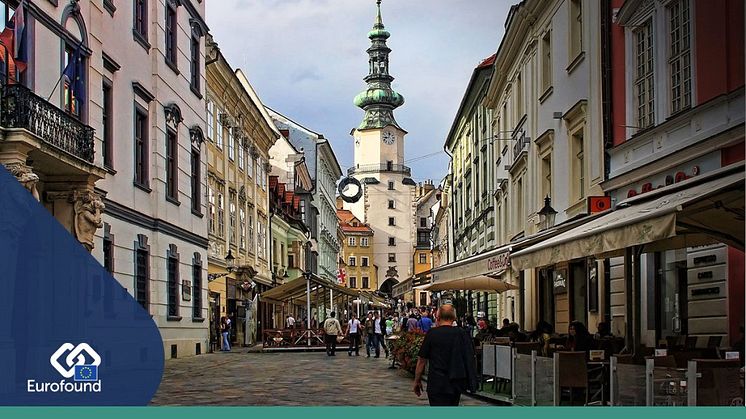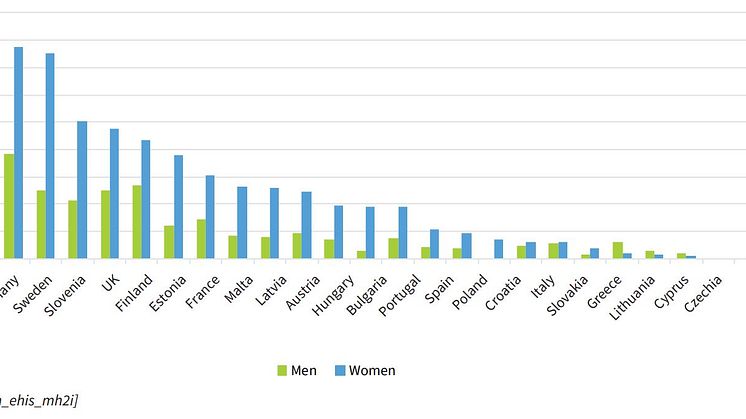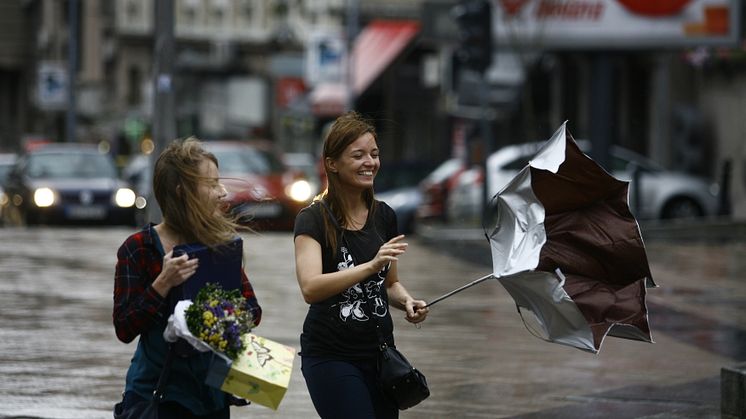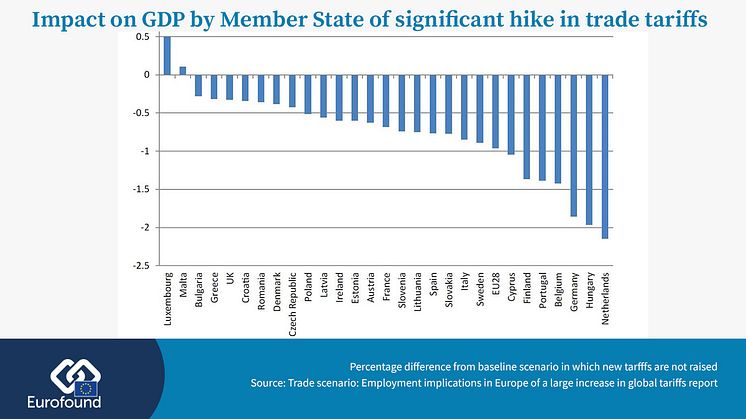15 years of EU membership and 80% of Slovaks feel European
As Slovakia tomorrow celebrates Slovak National Uprising Day, we mark the day by shining a spotlight on the ever-improving living and working conditions in Slovakia.

As Slovakia tomorrow celebrates Slovak National Uprising Day, we mark the day by shining a spotlight on the ever-improving living and working conditions in Slovakia.

This graph, based on Eurostat data, shows that gender is an important factor in depression. In most Member States young women aged 15–24 were more likely to suffer from depression than young men. The greatest gender gaps were in Denmark, Germany, Ireland and Sweden. Only in Cyprus, Greece and Lithuania were there higher percentages of young men with depressive symptoms.

Across the EU, 14% of young adults are at risk of depression, and 4% of young people aged 15-24 suffer from chronic depression. Young women are more likely to find themselves not in employment, education or training, and are significantly more likely to suffer depressive symptoms than young men

There are high levels of optimism for the future in most EU candidate countries – including for future generations. However, current material hardships, deprivation, urban-rural disparities, gender inequalities and demographic ageing are fundamental challenges, and could undermine the current positive climate and future social cohesion.

Today is World Refugee Day, the international day to show solidarity and support to refugees. Eurofound has just published a new report, coinciding with this occasion, looking at the role of public services in integrating refugees and asylum seekers.

The latest Annual Review of minimum wages in Europe gives a detailed analysis of minimum wage rates across Europe, and not only looks at the nominal and real terms increased in minimum wages - but also levels of taxation and net pay.

The latest Annual Review of minimum wages in Europe shows that there have been increases to the minimum wage across almost all Member States, in both nominal and real terms. The report also highlights that women are over-represented among minimum and low-wage earners.

La última revisión anual de los salarios mínimos en Europa muestra que se han producido aumentos significativos en los salarios mínimos de varios Estados miembros de la UE, tanto en términos nominales como reales.

La plupart des États membres de l'UE ont enregistré des hausses de salaires pour les bénéficiaires de salaire minimum et les bas salaires, les salaires minimums et les bas salaires ont en effet progressé dans la plupart d'entre eux, du fait de l’augmentation des salaires minima légaux qui ont augmenté dans presque tous les pays depuis janvier 2018.

There have been wage increases for minimum and low-wage earners in most EU Member States, with rises in statutory minimum wages in almost all countries since January 2018. While these increases are welcomed as good news for minimum wage workers, Eurofound’s research shows workers may not automatically feel the positive impacts of these changes.

People at work in Europe report good health and well-being, and increased control over their work activities. However, Eurofound data shows that work is also becoming more emotionally demanding, which poses a risk to health, as well as the long-term sustainability of work itself.

This graph shows the projected impact of an immediate and significant increase in global trade tariffs on the GDP of each Member State in 2030, compared to a ‘no new tariffs’ baseline forecast.
